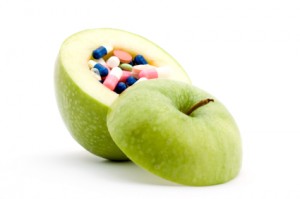It would be a dream come true for anyone in the western world to eat what they want and look good doing it. We are constantly reminded of this dream of a diet-free life that guarantees our good looks on a regular basis by internet advertisements, infomercials, and magazines. Some recent discoveries, however, have ensured that the chocolate lovers of our world can live the dream.
Eat chocolate and you’ll lose weight! Incredible, right? Dark chocolate, despite being seen more as an indulgence than a weight-loss strategy, is full of many natural benefits. Primarily, it is full of antioxidants, which boost cellular metabolism, thus burning more energy while at rest. A 2012 study done at the University of California highlights this effect in the following CNN report.

Link: https://www.youtube.com/watch?v=EVTeHwOWksA
In addition to its metabolic benefits, dark chocolate also helps the body manage sugar spikes by significantly reducing insulin sensitivity. Increases in insulin sensitivity means that the hormone insulin no longer functions as well as it should. As a result, muscle and fat cells will be less effective at using sugar, resulting in weight gain, and eventually Type 2 diabetes. A 2005 study from The American Journal of Clinical Nutrition goes into greater depth with regards to chocolate’s effects on insulin resistance.
So next time you feel the urge to have a sweet snack or a bit of dessert after a meal, don’t feel the need to resist. You may be doing yourself worlds of good by satisfying your chocolate crave! Despite its benefits however, the benefits only exist in moderation. Chocolate is not a miracle weight-loss drug, but its addition into a healthy diet and a bit of exercise can greatly improve your chances of fitting into those new skinny jeans for the summer!
By: Kia Sanjabi
References
- Fetters, A. (2014). Can eating chocolate help you lose weight? Retrieved 03/17, 2014, from http://www.womenshealthmag.com/weight-loss/chocolate-weight-loss#.
- Grassi, D., Lippi, C., Necozione, S., Desideri, G., & Ferri, C. (2005). Short-term administration of dark chocolate is followed by a significant increase in insulin sensitivity and a decrease in blood pressure in healthy persons. The American Journal of Clinical Nutrition, 81(3), 611-614.





